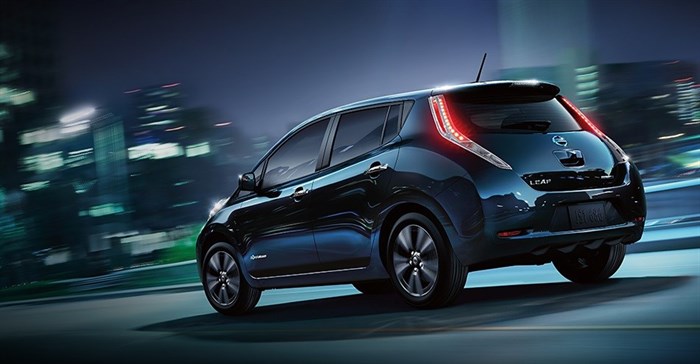
Related
Top stories







Researchers at uYilo, which is supported by the government, ESKOM and car makers, found running an all-electric Nissan LEAF for a year costs R18,000 less than a petrol car, based on the average South African annual mileage of 30,000 kilometres. The study also confirmed that the majority of South Africans drive less than 50 kilometres a day, well within the range of the Nissan LEAF on a single charge.
"The results show the real value in purchasing an EV, especially considering the current cost of fuel," says Hitten Parmar, acting director of the uYilo Programme."The savings, along with the low maintenance costs of EVs, make the Nissan LEAF the smart choice for consumers in the car market."
The Nissan LEAF is Africa's first electric vehicle, and was the first to be mass-produced and marketed globally. It is also by far the best-selling EV worldwide. The Nissan LEAF offers highly competitive cost of ownership, as well as superior driving dynamics and acceleration thanks to the 100% torque from zero kilometres per hour of its electric motor.
"As the world's biggest electric vehicle manufacturer we are proud to partner with uYilo and NMMU to further develop EV infrastructure and technology in South Africa. We firmly believe that EVs will play an important role in transportation and South Africa is in prime position to lead this innovation in the continent," Mike Whitfield, managing director of Nissan South Africa, says.
To date 80 units of the Nissan LEAF have been sold into the local market since 2013.
Nissan is working on solidifying an EV charging infrastructure in the country and has set out to increase capacity in the next 12 months. There will be 30 charging stations in Gauteng, 12 in KwaZulu-Natal, ten in Port Elizabeth, 15 in Cape Town, ten in Mpumalanga, ten in Limpopo and five in central South Africa.
uYilo, established at Nelson Mandela Metropolitan University in 2013 by the Technology Innovation Agency to fast-track the development of electric vehicles in South Africa, was provided a fleet of Nissan LEAF to support the studies. The next step for uYilo's research is to investigate how the cars can be integrated into the grid management system.
"The Nissan LEAF features bi-directional charging, and programmes are already underway in countries like Japan for drivers to use their cars to power their homes. Nissan's long-term vision puts electric vehicle batteries at the heart of the power grid, storing electricity during times of low demand, and releasing it back during peak hours," adds Whitfield.
The research also looked at the electric vehicle battery second life, a term referring to what happens to the battery when it has reached the end of its cycle after ten to 15 years of life within the vehicle. At second battery life stage, the study showed that it can be re-used in a rural environment to power a school's admin block or a rural clinic.
"As we gather more information in our next phase, manufacturers will also be able to collaborate with other industries and grow the EV ecosystem," concludes Parmar.